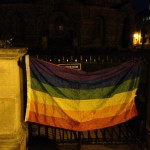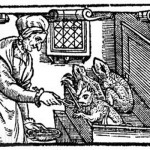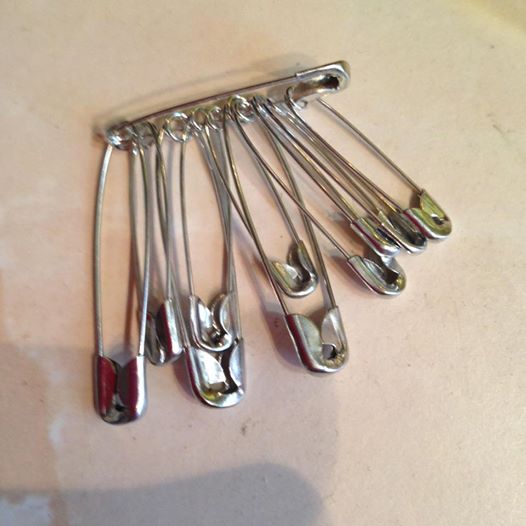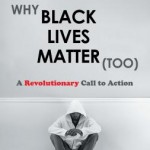Others have written more eloquently than I about the political, social, and economic implications of all this. Laurie Penny, George Monbiot, Gary Younge, and others have all written about the social and economic tensions that led up to this, and the ways in which white privilege and colonialist nostalgia fed into the rhetoric around the vote (if you didn’t notice that the Leave campaign was racist, check your white privilege; if you did notice, but voted Leave anyway, check your white privilege). I am so angry and distraught about the way that rampant racism is spreading its vile poison. How did Great Britain become Little England?
It ought to be obvious to anyone that Tory-imposed austerity is responsible for the economic misery that has cut services and reduced jobs and rendered many areas full of despair. Certainly, the brutal realities of capitalists accumulating wealth at everybody else’s expense also plays into this, causing division between the people they prey upon. Instead, people blame immigration and the EU.
So we have been led to the brink by a group of irresponsible and out-of-touch upper class twits, as The New Yorker immediately grasped, with their “Silly Walk Off A Cliff” cover art.. And although the 17 million who voted to leave the EU didn’t all vote that way on the basis of anti-immigration, the racists who are currently committing vile acts of hate up and down the land have felt empowered to do so because they are assuming that the rest of the Leave voters agreed with them.
There are at least two Britains, maybe more.
My Britain is diverse and inclusive; my heritage is William Blake, William Cobbett, E M Forster, Goldsworthy Lowes Dickinson, Edward Carpenter, the mass trespass of Kinder Scout, the Cable Street fight against the fascists, the Suffragettes, the Dissenters, the poets, the trades unions, the solidarity of Lesbians and Gays Support the Miners, and the miners who showed up to support LGBT people in the struggle for our rights; the Britain that welcomed Rammohun Roy and Mohandas Gandhi, the Britain that boycotted the products of slavery, a diverse Britain that has always been there, as Deasy Bamford says, from Libyans and Ethiopians on Hadrian’s Wall under the Romans, to Black people in 16th century London, the Jews returning to England in 1650, and always being welcome in Scotland, to the working men’s clubs that welcomed Black jazz and blues musicians during the 1930s: a history of radicalism, solidarity, inclusion, and working together. This is a Britain which recognises the distinctness of the Scots, the Welsh, the English, and the Irish. And it has wonderful food, enriched by many different cuisines from around the world. This Britain is part of Europe and part of the wider world.
Then there’s another Britain: it’s a grim place, where diversity of all kinds is shunned, where the music is all nationalist, where the kinds of people who are held up as heroes are Horatio Nelson (a slaughterer of revolutionaries) and the Duke of Wellington (a rampant xenophobe). This is the Britain of stiff upper lip, compulsory heterosexuality, football hooliganism, dreams of wall-to-wall whiteness, and eating stodgy and dull food. This is the Britain that put its wellington boot on the face of half the world, and then complained when the people who had been subjugated by the Empire wanted to come to Britain. The Britain that came to the fore in the film V for Vendetta.
Both Britains exist, and have existed side-by-side for centuries – now and again, one or the other has the upper hand. For a few decades, inclusive, vibrant, multicultural Britain has had the upper hand. We emerged from the ghastly uniformity of the 1950s, into the explosion of colour that was the 1960s. The 1970s were pretty grim (especially the overt homophobia, the vile racism, the dreadful food and the tasteless wallpaper), and the 1980s were not much better. Then the effects of the prosperity brought by the EU started to have an effect, and for a short while, it looked as if inclusive Britain would triumph, despite setbacks.
Rhyd Wildermuth writes, in A Storm at the Crossroads:
“Would it not be better if we were to stretch into ourselves like felines?” Peter Grey asks, and is that not also how anything grows? The muscle always tensed becomes useless, the heart defended by castle walls will never dare to love, the soul constantly defending borders will never take flight in travel, and the mind that entrenches will never learn to dance.
You know that story about the two wolves that live in the psyche – the friendly one and the vicious one – and it’s the one that you feed that gets the upper hand? Well, the combination of austerity and cutbacks and racist demagoguery has fed the wolf of nationalism in the British psyche – especially the English and Welsh bits of it (though Scotland is by no means immune). There has been a massive vote in favour of insularity, nationalism, and isolationism (and even if you didn’t mean your vote for Leave in that way, that is how it is being interpreted both by the racist thugs, and by the rest of the world).
I am also reminded of the bit in the stories of Arthur and Merlin, where Vortigern is trying to build a castle on a hill, but it keeps falling down. Merlin sees with his inner eye that this is because two dragons are fighting each other in a lake underneath the hill, and advises Vortigern to drain the lake. We are trying to build a beautiful city of inclusion and welcoming diversity, but the dragon of hate and intolerance is having a fight with the dragon of inclusion and diversity. But King Arthur won’t be coming back to fix things. It is up to us now to build the circle of Camelot, in the realm of Logres, the dream vision of Albion, the land of diversity and inclusion and hospitality.
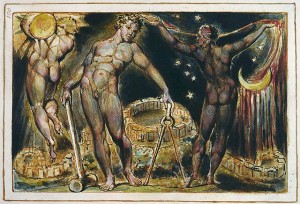
So what can we do?
- Build and strengthen your links with your local community – other faith groups, people from other cultural backgrounds. Talk to your neighbours. Hold a local event to bring your community together.
- If you can facilitate workshops, create a workshop on civil courage and standing up to racism.
- If you are a Pagan organisation or group or an individual with any sort of platform, make a statement rejecting hate and racism.
- Sign and share the inclusive Wicca statement rejecting racism, and the Pagan Federation statement against racism.
- Wear a safety pin to show solidarity with diverse communities – but don’t stop there. Be prepared to intervene if you witness a racist incident or attack.
- Report it – if you are the witness or the victim of a hate crime, please report it to the police.
- Join Pagans Against Racism (UK) and work to make Paganisms more inclusive.
- Do rituals and magic to support a positive outcome. We need all the allies we can get. If my vision of an inclusive and welcoming Albion, with the round table of Camelot at its heart, speaks to you, then you might want to focus on that in your rituals. Imagine the round table being filled with people of different colours, ages, genders., and sexual orientations.
- Here’s some suggestions from The Guardian on six positive things to do. I especially like number 3: solidarity with immigrants.

